We’ve toured the British Isles to bring you 25 of Britain’s best stately homes, from the World Heritage Site of Blenheim Palace to the ‘real’ Downton Abbey, Highclere Castle…
The number of heritage buildings still standing proudly across our land never fails to amaze us. Most of Britain’s best stately homes have hosted kings and queens, prime ministers, actors and poets – all manner of illustrious guests.
Here are some of Britain’s best stately homes, from examples of architectural brilliance to places that hide unbelievable stories. So read on, enjoy, and start planning your next trip.
1. Blenheim Palace, Oxfordshire
When listing Britain’s best stately homes, we simply had to mention Blenheim, the sprawling Oxfordshire estate that was built for John Churchill, 1st Duke of Marlborough. The palace was built on land gifted to Churchill by Queen Anne. Anne also awarded him £240,000 for his victory over the French in the War of the Spanish Succession.
It was at Blenheim almost two centuries later that one of the duke’s descendants, Sir Winston Churchill, was born. The future prime minister even chose to propose to Clementine Hozier here, by the Temple of Diana, in 1908.
The house – the only non-royal or non-episcopal country house in England to be called a palace – is a masterpiece of English Baroque architecture. Designed by Sir John Vanbrugh and Nicholas Hawksmoor, it includes many beautiful features, such as the painted ceiling in the Saloon.
However, Blenheim’s 2,000 acres of gardens – one of the most exquisite works of 18th-century landscape architect Lancelot ‘Capability’ Brown – are what really make it special. It’s small wonder UNESCO declared it a World Heritage Site in 1987.
2. Highclere Castle, West Berkshire
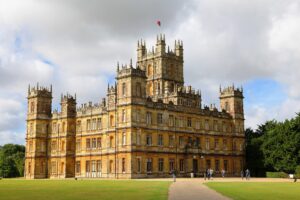
With the second Downton Abbey film recently gracing our screens, surely it’s time to revisit the glorious Berkshire ancestral home that has formed the backdrop to so many scenes of the Crawley family and their household.
Certainly one of Britain’s best stately homes, The ‘real’ Downton Abbey, Highclere Castle, is the family seat of the Earls of Carnarvon. It was the current countess, Lady Carnarvon, a close friend of Downton Abbey writer Julian Fellowes, who saw the value in opening the house up to the period drama that has revived the estate’s fortunes.
Although Highclere has been in the hands of the Carnarvon family since 1679, (and its gardens were also designed by Capability Brown), the current house was remodelled in the Jacobean style in 1838 for the 3rd Earl of Carnarvon by Sir Charles Barry, the man who famously rebuilt the Palace of Westminster.
Highclere Castle became the focus of a media circus in 1922 when the 5th Earl discovered the Tomb of Tutankhamun. The earl died shortly after the discovery, leading to the story of the ‘Curse of Tutankhamun’. However the earl’s death could be explained by blood poisoning from an infected mosquito bite.
3. Chatsworth, Derbyshire
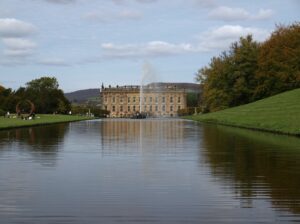
Few English estates draw such delight as this one in the heart of the Peak District. Chatsworth is known to many as Pemberley in the 2005 film adaptation of Pride and Prejudice, starring Keira Knightley. Eagle-eyed viewers may also remember it from another Knightley film, The Duchess.
Chatsworth has been the seat of the Dukes of Devonshire since 1549 and has passed through the hands of 16 generations of the Cavendish family.
The house is famed for its art collection, which spans four centuries, but its state apartments, overhauled to accommodate a visit from King William III and Queen Mary II that never actually happened, are extraordinary.
4. Hardwick Hall, Derbyshire
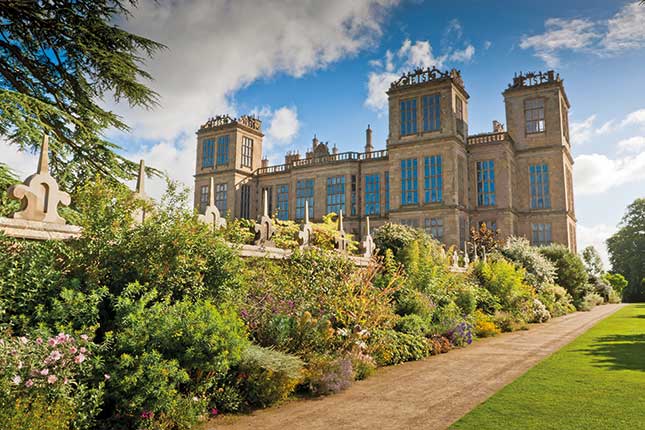
Bess of Hardwick was one of the most influential figures in Elizabethan times – she was second in wealth only to Queen Elizabeth I – and Hardwick Hall was one of her homes.
It is a magnificent example of a prodigy house – showy properties built to house the queen on her annual progresses.
The plentiful windows – an extravagance as glass was expensive – led to the rhyme, ‘Hardwick Hall, more glass than wall.’
5. Wentworth Woodhouse, South Yorkshire
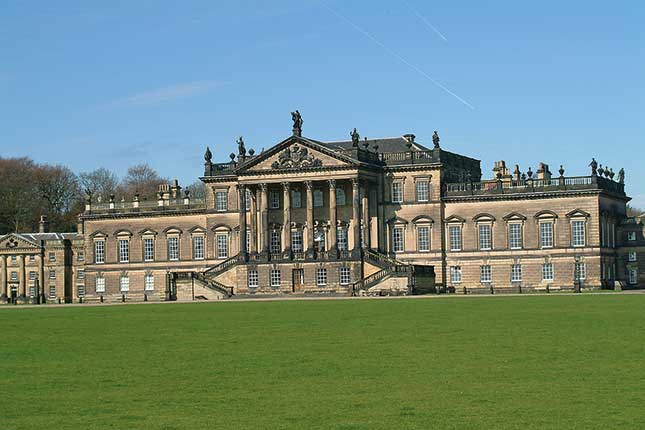
The largest private residence in Europe, Wentworth is twice the width of Buckingham Palace. This 18th-century mansion has recently been bought and will undergo £40m of restoration work over the next 20 years.
It was once the home of Charles I’s ill-fated administrator, Thomas Wentworth, 1st Earl of Strafford. Wentworth was tried and beheaded for treason in 1641. The house also hosted a visit by King George V and Queen Mary in 1912.
6. Lacock Abbey, Wiltshire
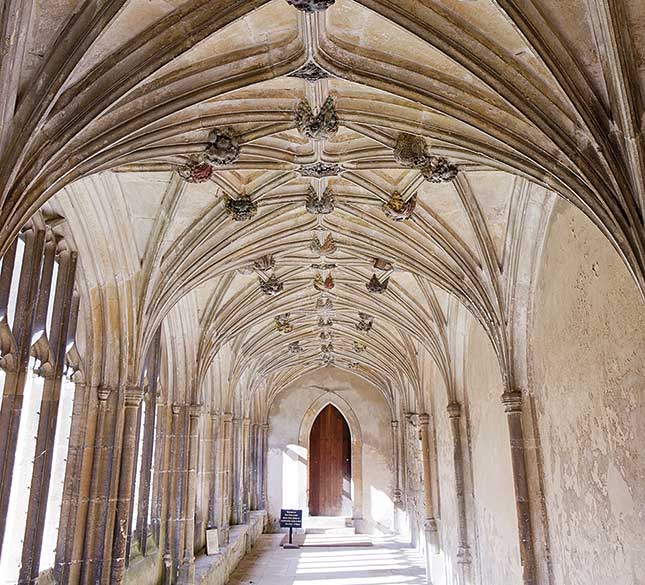
This quirky country house, near the historic town of Lacock, was built on a former nunnery and represented the ‘real’ Wolf Hall, the family seat of the Seymours, in the recent TV adaptation of Hilary Mantel’s novels.
Scenes depicting King Henry VIII’s bedroom and his lodgings at Calais were also filmed here. In real life, Henry sold Lacock to one of his courtiers, Sir William Sharington, following the Dissolution of the Monasteries. It is now in the care of the National Trust.
7. Stonor, Oxfordshire
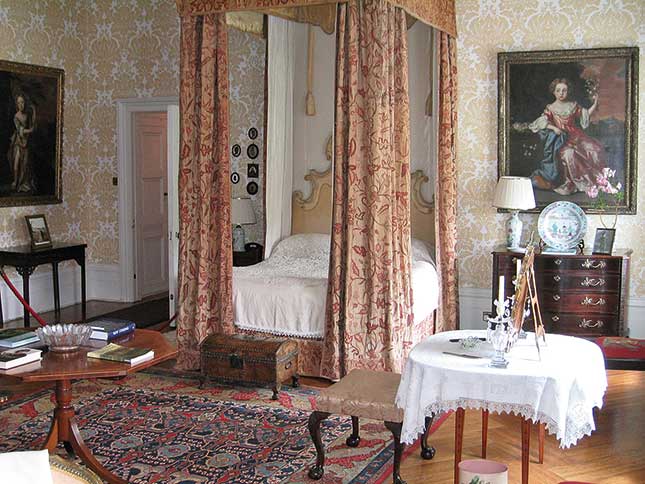
Although it is one of our oldest manor houses, Stonor is also one of our lesser-known stately homes, despite the fact that one of the most significant religious events in British history took place here.
In 1581 Edmund Campion hid in the roof space while he printed 400 copies of his famous treatise, Decem Rationes, arguing for Catholicism. However, he was soon caught and tortured before being hung, drawn and quartered.
The house is open at select times from April to September and holds a rare copy of the Decem Rationes.
8. Castle Howard, North Yorkshire
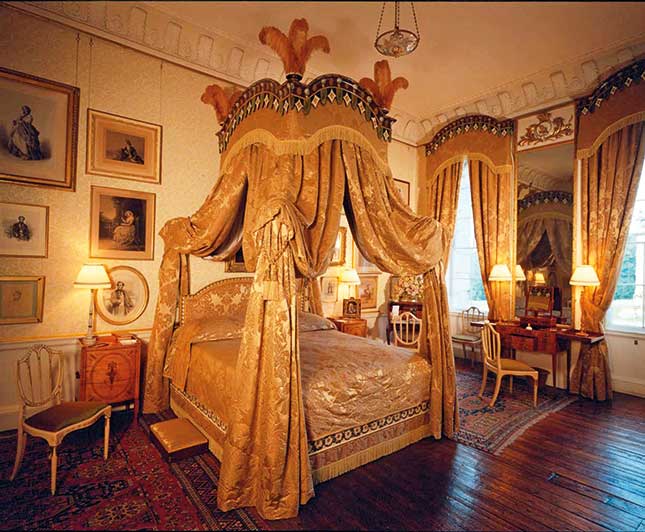
So ambitious was the vision for Castle Howard, the private residence of the Howard family for more than 300 years, that the Baroque building took over 100 years to complete. The result was astounding, though, with two symmetrical wings and a central dome.
Although much of Castle Howard was devastated by fire in the 1940s, over the years many rooms have been restored. However, when the house was used as the backdrop for the film version of Evelyn Waugh’s Brideshead Revisited in 2008, parts were superficially restored and the East Wing remains a shell.
9. Crag Hall, Derbyshire
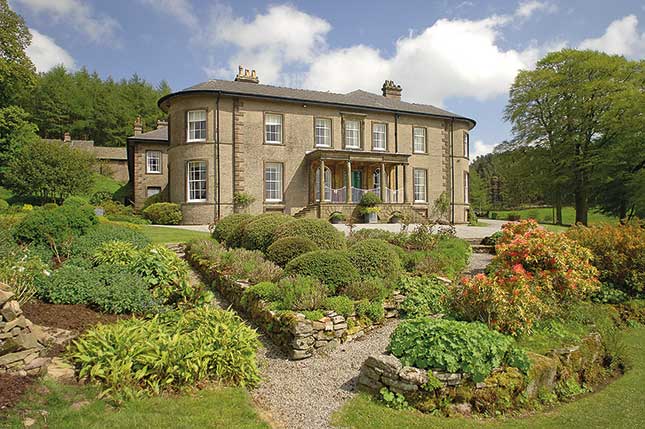
Until recently this sandstone Georgian country house with views over Peak District National Park was the private shooting lodge and holiday home of the Earl and Countess of Derby, but now you can hire it for your own gathering.
Located amid historic royal hunting ground, this 12-bedroomed property can accommodate up to 21 guests. A perfect set-up for living out your Downton Abbey fantasies.
10. Kenwood House, London
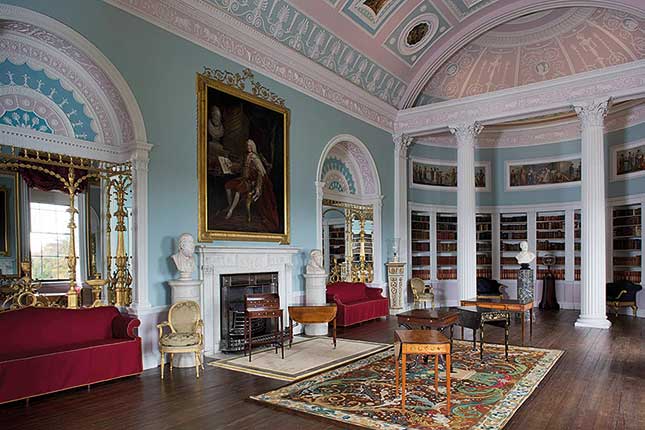
Hidden in London’s Hampstead Heath, Kenwood House is a Robert Adam’s house, remodelled by the architect in 1764 to include a new entrance, attic-storey bedrooms and one of his most famous interiors – the Great Library, which was restored to its original colours during a major restoration project in 2013.
The grounds are home to ancient woodland and landscaped gardens, probably designed by Humphry Repton, and feature sculptures from the likes of Barbara Hepworth and Henry Moore.
11. Lyme Park, Cheshire
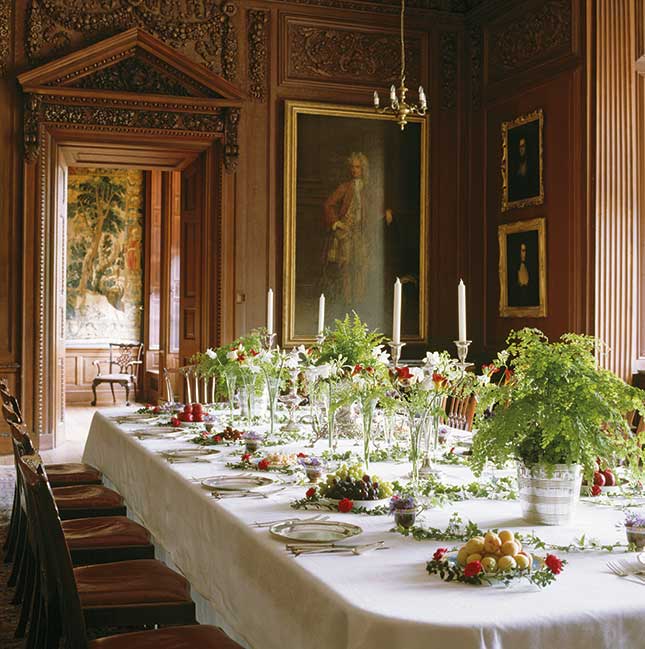
Best known for its starring role as Mr Darcy’s Pemberley in the 1995 BBC adaptation of Jane Austen’s Pride and Prejudice (yes, that scene when Colin Firth emerges from the lake), Lyme Park is a fine example of an Italianate palace.
Outside, the 1,300 acres are home to a medieval herd of red and fallow deer, while inside you’ll find an incredible collection of English clocks and the famous Mortlake tapestries. The Edwardian era was when Lyme Park was in its heyday and the house is a time capsule of that period.
12. Buscot Park, Oxfordshire
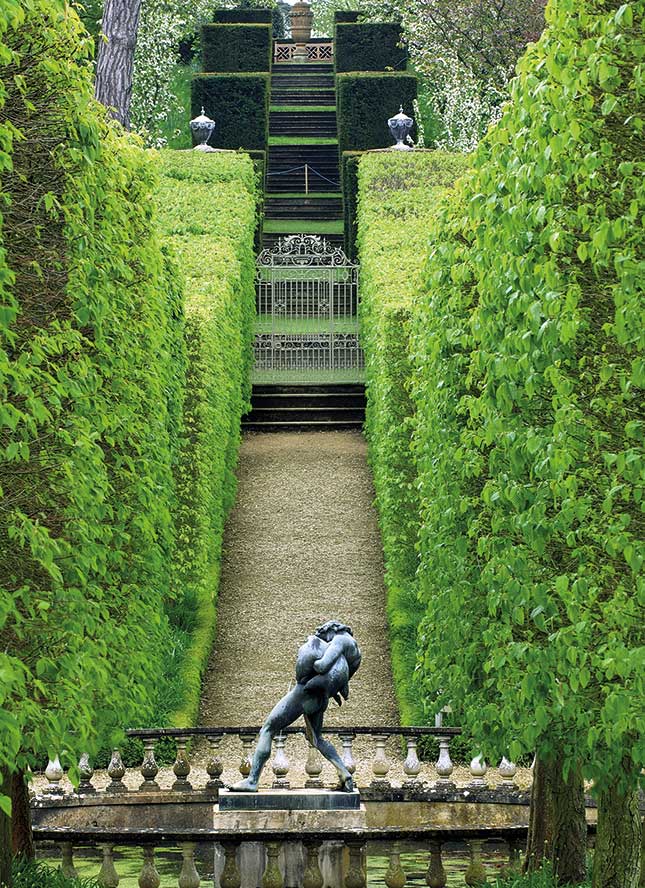
This stately home was built in the Renaissance Revival style of architecture between 1779 and 1783 for Edward Loveden Townsend. Buscot also houses the Farringdon Collection, with paintings by Rembrandt, Reynolds, Rubens and Van Dyck.
13. Great Chalfield Manor and Garden, Wiltshire
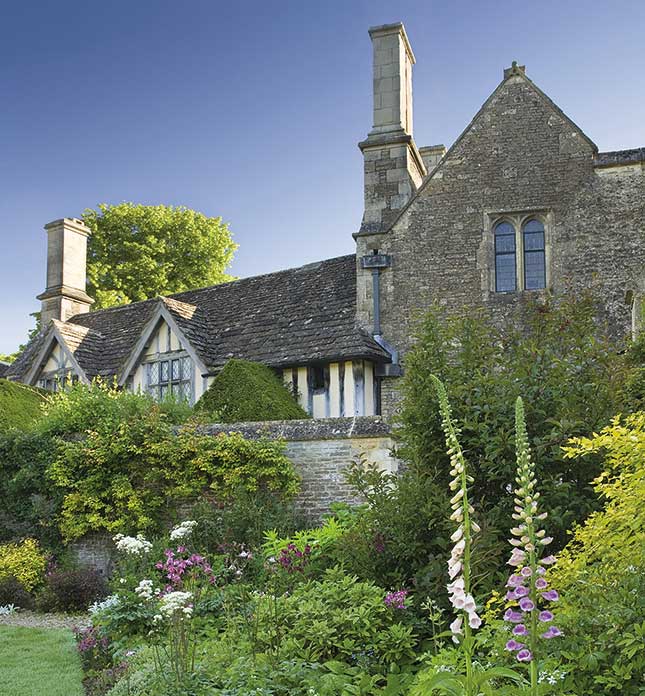
The stand-in for Thomas Cromwell’s home of Austin Friars in TV’s Wolf Hall, Great Chalfield is as pretty an English country house as you can imagine.
The 15th-century moated manor house is set in tranquil countryside and features a gatehouse and stunning oriel windows, all of which withstood a siege by Royalists during the English Civil War. The private residence offers guided tours, or you can book into one of Chalfield Manor’s reasonably priced gorgeous four-poster bedrooms for the night.
14. Burghley House, Lincolnshire
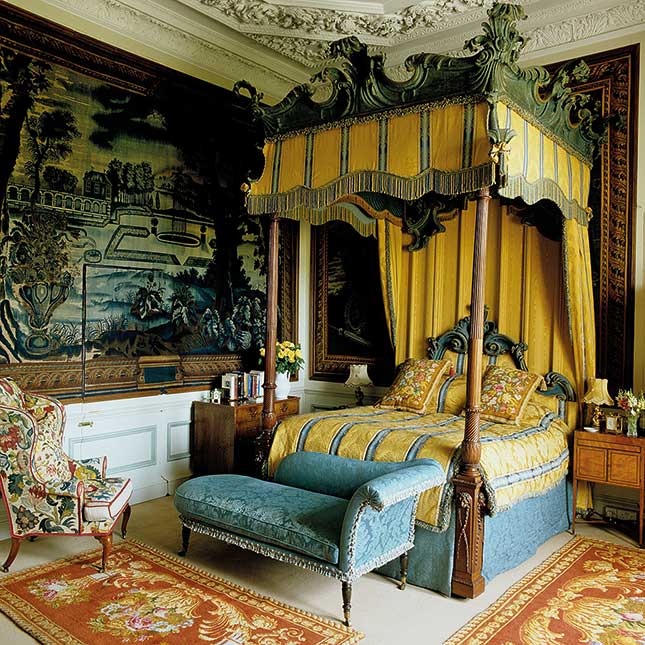
Described as ‘England’s greatest Elizabethan house’, Burghley was built and designed by William Cecil, Lord High Treasurer to Queen Elizabeth I, between 1555 and 1587. Its grounds includes 2,000 acres of Capability Brown gardens, (which were added later), and a deer park.
The interior is lavish and features sumptuous fabrics and carvings by Grinling Gibbons. In the Pagoda Room are portraits of Queen Elizabeth I, King Henry VIII, Oliver Cromwell and members of the Cecil family.
Some say that beneath its foundations lie the remains of the medieval settlement of Burghley, mentioned in the Domesday Book, which so far has evaded archaeologists.
15. Mount Stuart, Isle of Bute
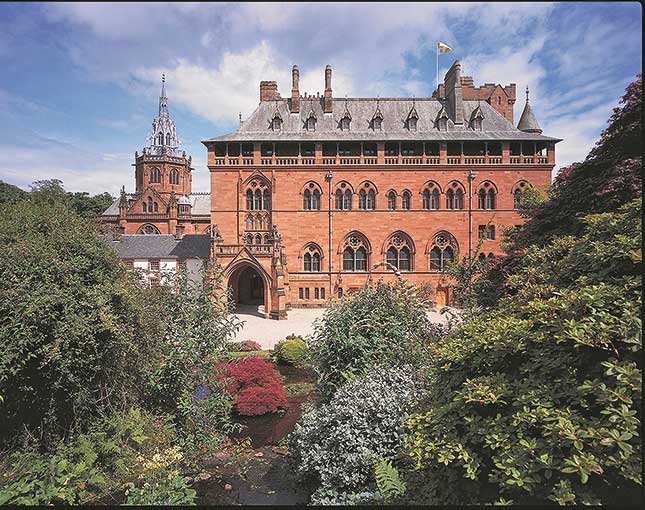
It may come as a surprise that the first house in Britain to have an indoor heated swimming pool is hidden on the tiny Isle of Bute in the Firth of Clyde in Scotland, but then Mount Stuart is no ordinary place. It was also probably the first property in Scotland to have electric lighting, central heating and a passenger lift – a horse-drawn railway was needed to build the house.
The Gothic Revival building, which replaced an earlier Georgian property, is a feat of Victorian engineering. It was created for John Crichton-Stuart, 3rd Marquess of Bute – the richest man in Britain in the late 19th century.
16. Woburn Abbey, Bedfordshire
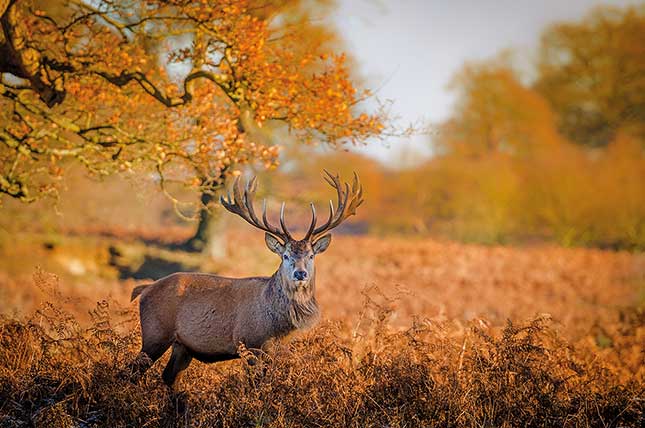
Woburn has been in the Russell family since King Edward VI gifted it to John Russell in 1547. In 1550 John was made the first Earl of Bedford.
It’s been the family seat since the 1620s and it was turned into the English Palladian home in the 1800s. The estate first opened to the public in 1955 and its impressive art collection includes the largest private collection of Venetian views painted by Canaletto on public view and the Armada Portrait of Queen Elizabeth I.
17. Longleat House, Wiltshire
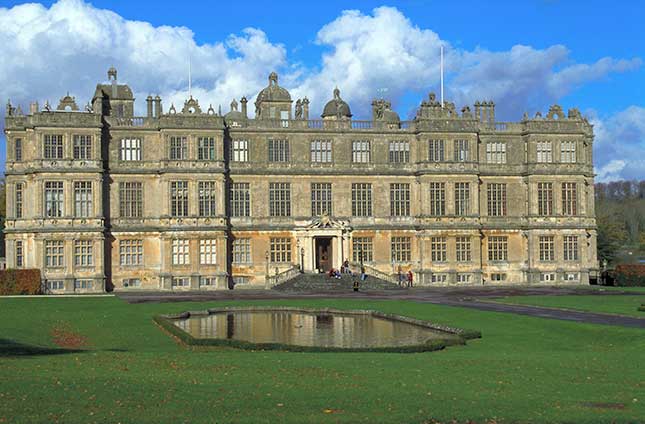
Completed in 1580, Longleat is another of our great Elizabethan houses and one of Britain’s best stately homes. Set in 900 acres of Capability Brown parkland, it also has one of the largest book collections in Europe. Look out for the bloodstained waistcoat of King Charles in the Great Hall – he reportedly wore it at his execution.
Now home to the 7th Marquess of Bath and run by his son, Viscount Weymouth, Longleat has come a long way from the property bought by MP John Thynne in 1540 for £53.
18. Llancaiach Fawr Manor, South Wales
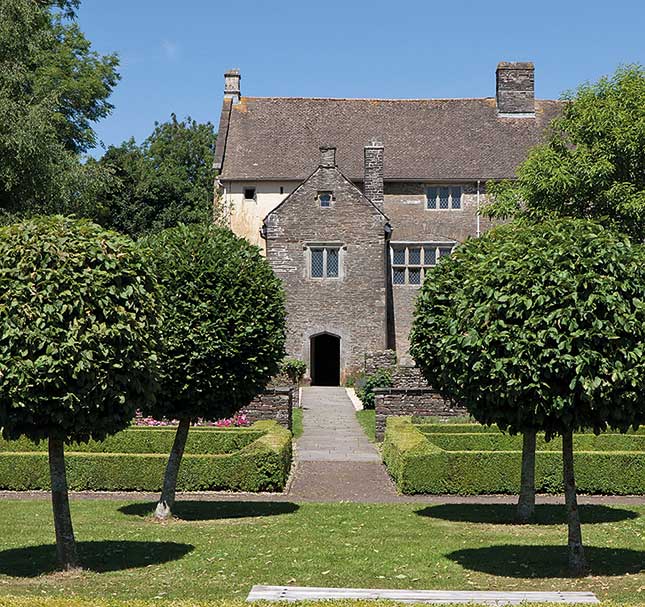
Built circa 1550 for Dafydd ap Richard, this house is a great example of a semi-fortified manor house. It’s laid out much as it would have been in 1645 when King Charles I visited. Charles must have angered the owner, Colonel Edward Prichard, as he switched allegiances to the Roundheads.
19. Luton Hoo, Bedfordshire
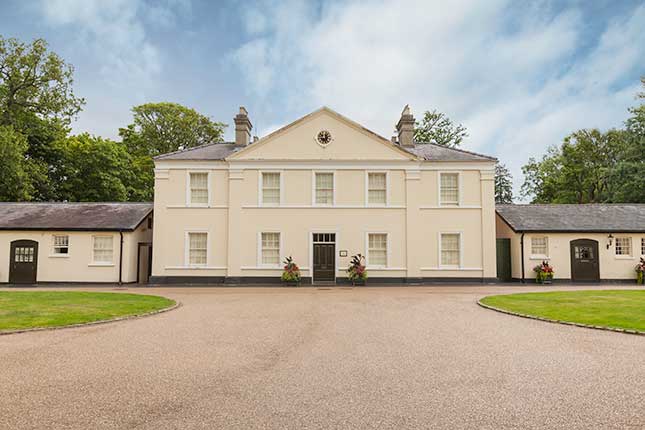
A house has stood at Luton Hoo since at least 1601 when Sir Robert Napier, 1st Baronet, purchased the estate. The house we see today dates from the late 18th century. At the time it was the seat of the 3rd Earl of Bute, then prime minister to King George III. Like many of Britain’s best stately homes, it too has Capability Brown designed gardens.
Guests at Luton Hoo hotel can enjoy the Edwardian Belle Epoque interiors introduced by the people behind the Ritz. One highlight is the Wernher Restaurant, named after the owner who ordered the works. Over the years the estate has fulfilled many roles, including testing tanks during the Second World War.
Today it’s a fantastic place to get a taste of the English country life. Take afternoon tea or have a go at archery, much as past guests of its distinguished owners would have done.
20. Hatfield House, Hertfordshire
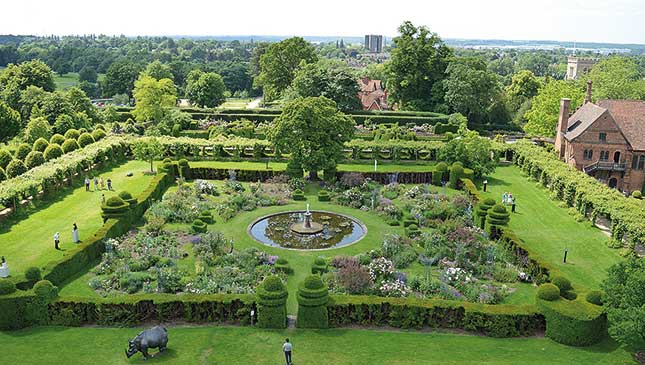
Within easy reach of London, this Jacobean-style property was built for Robert Cecil, 1st Earl of Salisbury, on the site of Hatfield Palace. Cecil had exchanged Hatfield with King James I for the nearby Cecil family home of Theobalds.
Like the king, Robert Cecil wasn’t keen on the rather old-fashioned Hatfield Palace, which had been owned by King Henry VIII, and so he rebuilt it as Hatfield House.
It was here that Henry VIII’s offspring, Mary, Elizabeth and Edward played as children. Elizabeth was even supposedly told of her ascension to the throne at Hatfield.
The Marble Hall takes its name from the chequered black and white flooring where guests would have danced at balls. Guests were overlooked by the Rainbow Portrait of Queen Elizabeth I – perhaps the most colourful portrait of the Tudor era. The inscription ‘Non sine sole iris’, meaning ‘no rainbow without the sun’, reminds viewers that only the queen’s wisdom can ensure peace and prosperity.
21. Norton Conyers, North Yorkshire
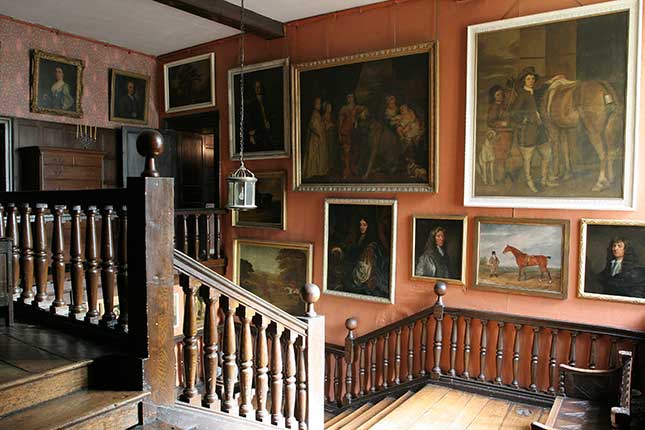
It is one of the most enduring images in English literature: the mad woman locked away in the attic. And it was at Norton Conyers that Charlotte Brontë is said to have taken inspiration for her novel, Jane Eyre.
Charlotte Brontë visited the medieval house in 1839, before she wrote her seminal novel. Could it be mere coincidence that Norton Conyers has its own legend of a woman hidden in an attic? The discovery of a blocked staircase in 2004, much like the one in the novel, seemed to confirm the theory. The house has recently been restored and reopened to the public on a few select days each year, and is most definitely one of Britain’s best stately homes.
22. Blickling Hall, Norfolk
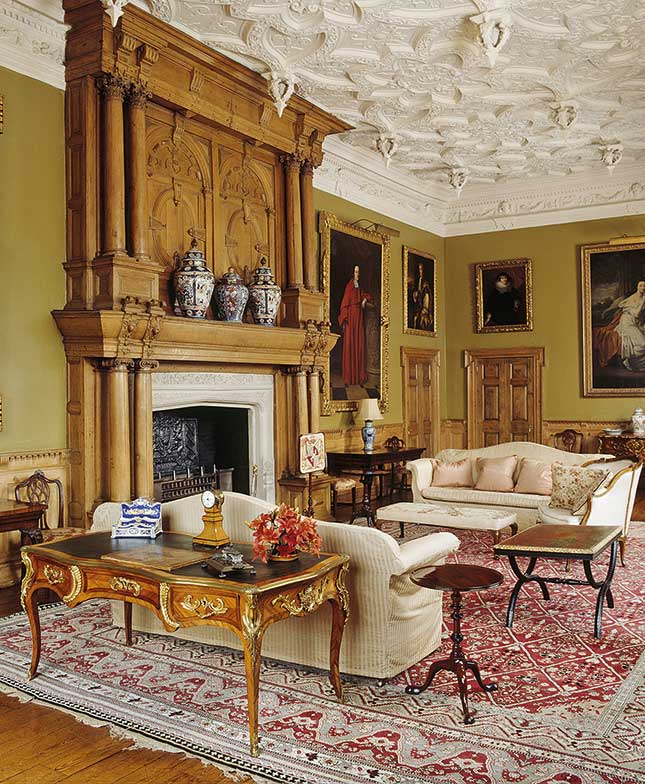
Was this red brick mansion built on the site of the birthplace of Anne Boleyn? The house was built on the ruins of the former Boleyn home during the reign of King James I. Anne’s parents lived here from 1499 to 1505, so if Anne was indeed born in 1501 then it’s highly probable.
On the staircase of the Great Hall there are reliefs of Anne and her daughter, Queen Elizabeth I. Anne’s ghost is also said to appear carrying her severed head every year on the anniversary of her execution. The South Drawing Room, with its Jacobean-style chimneypiece and ceiling, is also highly impressive.
23. Montacute House, Somerset
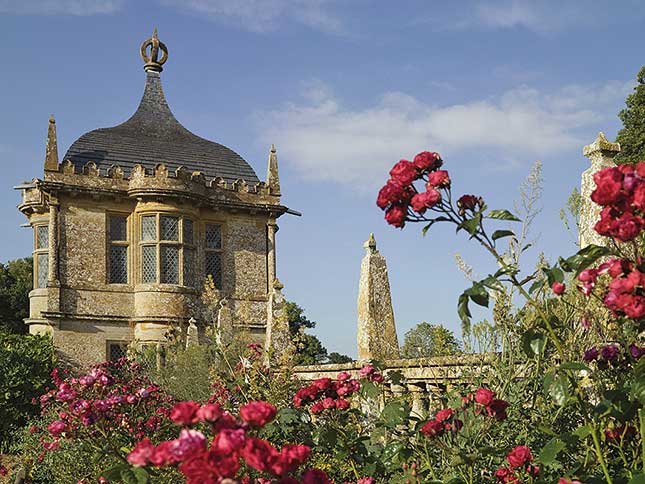
This late Elizabethan house was Greenwich Palace in TV’s Wolf Hall and is considered a masterpiece of Renaissance architecture. The house’s biggest draw by far is its Long Gallery, the longest of its kind in England. Montacute’s Long Gallery displays over 60 Tudor and Elizabethan portraits loaned to the house by the National Portrait Gallery.
24. Sudeley Castle, Gloucestershire
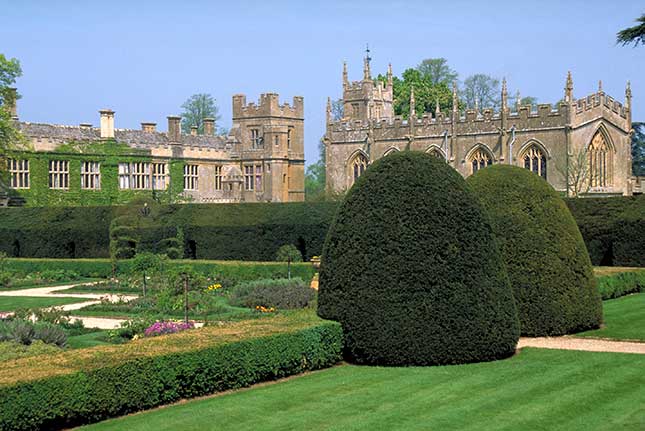
The final resting place of King Henry VIII’s last wife, Catherine Parr, this beautiful private castle is perhaps as well known for its colourful gardens as its restored Tudor buildings.
Situated in the heart of the Cotswolds, in an Area of Outstanding Natural Beauty, just a few miles from Broadway, Sudeley lay in ruin for almost 200 years following the English Civil War when Cromwell ordered its ‘slighting’, until an ambitious restoration project began in 1837.
25. Somerleyton Hall, Suffolk
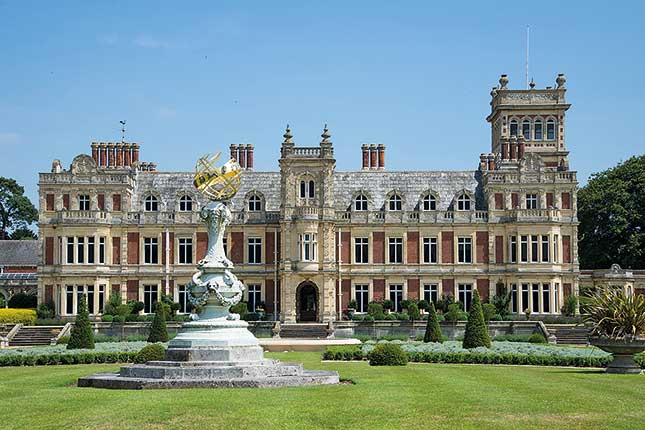
This gorgeous Tudor palace opens to the public from April to September. It grounds feature one of Britain’s finest yew hedge mazes and a 70ft-long pergola, and it is deservedly on the list of Britain’s best stately homes.

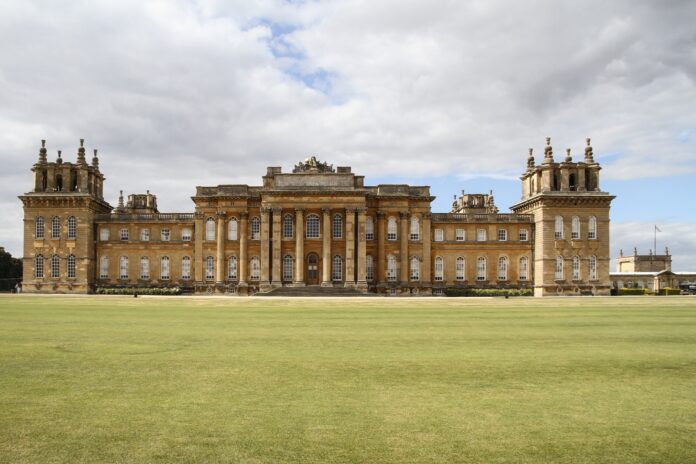


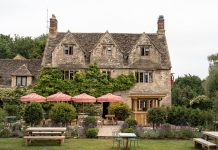

 © 2024
© 2024